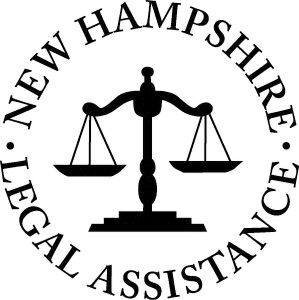Renting with Children? What You Need to Know
Safe and stable housing is essential for families with children, yet some families face obstacles when renting. A landlord may try to impose specific rules just for families with children or reserve certain apartments for adults only.
Housing discrimination against families with children under age 18 is illegal. Whether you are a parent, grandparent, or legal guardian, the fact that you have children or are pregnant cannot be used as a reason not to rent to you.
New Hampshire Legal Assistance’s Fair Housing Projectseeks to help people who have experienced housing discrimination, including families who have faced barriers to accessing housing because of their children. This post outlines what landlords can request from renters with children and what is illegal under state and federal law.
Refusing to Rent. What a Landlord Can and Cannot Do
If a landlord or rental agency tells you they do not rent apartments to families with children, or do not have any apartments available that are suitable for children, this is likely housing discrimination.
One exception is age-restricted housing for older people. Some communities have housing developments intended to provide safe, affordable housing for people over the age of 55. In some cases, this may be over the age of 62. Depending on the type of senior housing development, they may be exempt from laws prohibiting refusal to rent to people with children.
Another exception may be when the total number of family members would exceed the municipal fire code regulations for residents per room. However, a landlord cannot refuse to rent because they allow only one person per bedroom or have other limitations not related to local codes and regulations.
Different rules for families with children
Some landlords may be concerned for a child’s safety or worry about their liability if a child should get injured within the apartment or common areas. This concern may lead to rules and restrictions that are unfairly aimed at families with children, but not other residents.
For example, a landlord cannot restrict families with children to first floor units or refuse to rent an apartment to a family with children because the landlord thinks the apartment is unsafe. Some landlords may object because of concerns the children will damage the apartment. These are issues the children’s parents decide and oversee, not the landlord, and the landlord therefore does not have the right to make these decisions for the parents.
This applies to rules and policies as well. For example, a landlord cannot evict a family because the children are too noisy but not evict other tenants who make different kinds of noise like playing loud music or hosting parties.
Protections Extend From Application to Leaving the Rental
The Fair Housing Act protects families with children from the time they apply until the day they leave the apartment.
How Common is Housing Discrimination for Familial Status?
A Boston Globe articlein 2017 found that housing discrimination in the Boston area was “rampant.” Here in New Hampshire, the Fair Housing Project also regularly receives reports of discrimination from families with children, especially during the stay-at-home orders issued during the Covid-19 pandemic. We investigate complaints and assists victims of housing discrimination to help them gain the protections and remedies they deserve. We also run a Testing Program to identify companies or landlords who are engaging in housing discrimination.
To contact the Fair Housing Projector to report discrimination, call us at 1-800-921-1115.
Safe and stable housing is essential for families with children, yet some families face obstacles when renting. A landlord may try to impose specific rules just for families with children or reserve certain apartments for adults only.

